Hepworth’s Progeny: Survey
Hepworth’s Progeny is a research project hosted by The Hepworth Wakefield in partnership with art historian Griselda Pollock and sculptor Lorna Green. The project revisits original research into women’s sculptural practices undertaken in the late 1980s by Green, The Position and Attitudes of Contemporary Women Sculptors in Britain 1987-9 , as the basis of a present day comparative study.
Please note, this survey is now closed.
The ambition of our current feminist research project, which acknowledges the intersections of age, class, gender, ethnicity, sexuality, neurodiversity and other factors, is to deepen understanding of women’s lives, careers and experiences within the expanded field of sculptural practice, and changes in gender equality and issues of identity, between 1989 and 2022. Have generations of women been affected differently over the past 30 years? What possibilities does our present moment offer artist-women? Equally, are there persistent barriers and inequalities?
The study will lead to:
- A public exhibition, conference and events programme at The Hepworth Wakefield in 2022/23
- Published articles and recommendations
- An archive of women’s sculptural practices, held at The Hepworth Wakefield for future research opportunities
- A women’s sculpture network established by The Hepworth Wakefield
If you are a woman with a sculptural practice we would love to hear from you. Our questions below are prompts for thinking, and we invite you to share your thoughts in your own words, writing as little or as much as you would like to, even disagreeing with them if you so wish.
All your information will be held in accordance with the data protection policies of The Hepworth Wakefield, which can be viewed here.
We are committed to making the survey accessible to all and supporting those facing barriers to responding. Please do not hesitate to contact project researchers Dr Anna Frances Douglas (annadouglas@hepworthwakefield.org) or Dr Kerry Harker (kerryharker@hepworthwakefield.org) if you require any additional support to enable you to share your thoughts with us.
The form is also available to download as a Word document if you prefer to complete it offline and post back to us at the address provided or email it to us (see above).
Survey closing date: Monday 28 February 2022
Thank you for contributing to our research.




